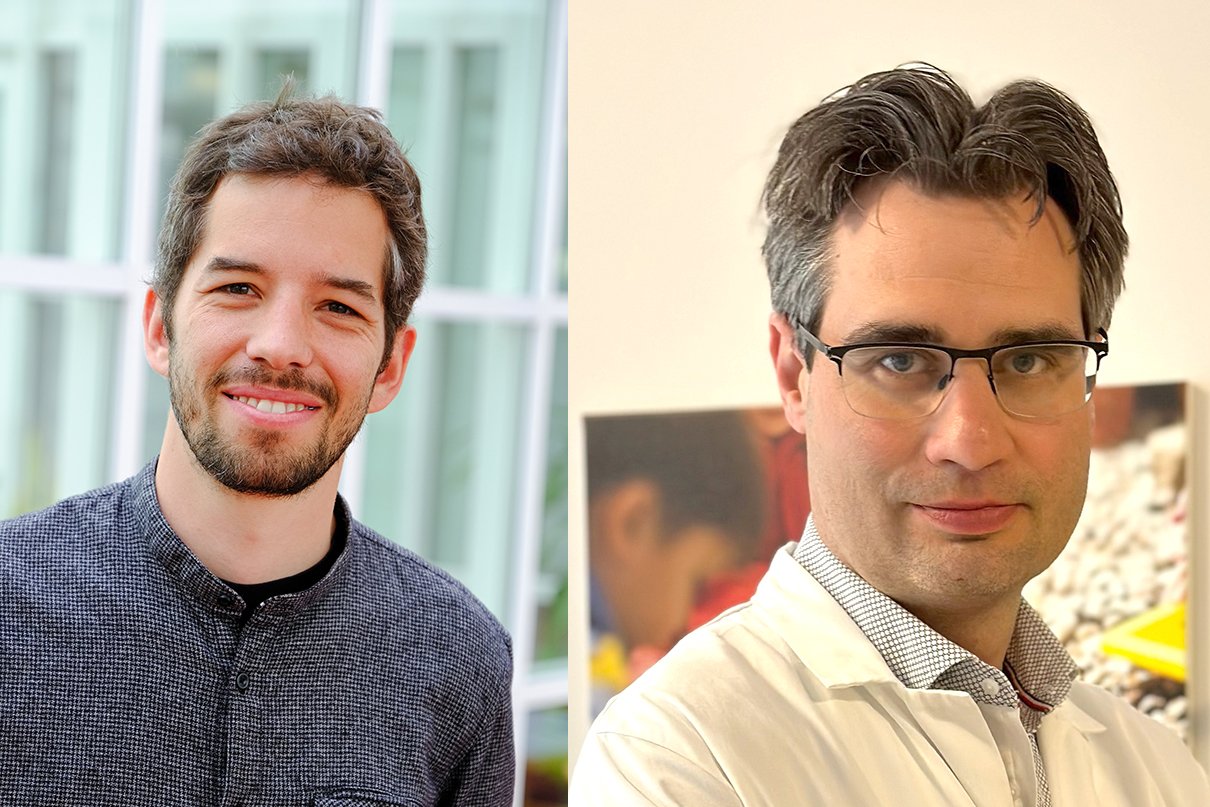
After activation, data will be sent to YouTube. Further information here: Data protection
English subtitles on Youtube available: click on the gear icon and select “Untertitel” – “English”
Dr. Nikolaus Fortelny and Dr. Matthias Farlik

MedUni Wien RESEARCHER OF THE MONTH March 2025
Immune cells need to sustain a state of constant alertness over a lifetime. Yet, little is known about the regulatory processes that control the fluent and fragile balance that is called homeostasis. Here we demonstrate that JAK-STAT signaling, beyond its role in immune responses, is a major regulator of immune cell homeostasis. We investigated JAK-STAT-mediated transcription and chromatin accessibility across 12 mouse models, including knockouts of all STAT transcription factors and of the TYK2 kinase. Baseline JAK-STAT signaling was detected in CD8+ T cells and macrophages of unperturbed mice - but abrogated in the knockouts and in unstimulated immune cells deprived of their normal tissue context. We observed diverse gene-regulatory programs, including effects of STAT2 and IRF9 that were independent of STAT1. In summary, our large-scale dataset and integrative analysis of JAK-STAT mutant and wild-type mice uncovered a crucial role of JAK-STAT signaling in unstimulated immune cells, where it contributes to a poised epigenetic and transcriptional state and helps prepare these cells for rapid response to immune stimuli.
Selected Literature
-
Mostafavi, S. et al. Parsing the Interferon Transcriptional Network and Its Disease Associations. Cell 164, 564–578 (2016) doi:10.1016/j.cell.2015.12.032.
-
Philips, R. L. et al. The JAK-STAT pathway at 30: Much learned, much more to do. Cell 185, 3857–3876 (2022) doi:10.1016/j.cell.2022.09.023.
-
Fortelny, N. et al. JAK-STAT signaling maintains homeostasis in T cells and macrophages. Nat. Immunol. 1–13 (2024) doi:10.1038/s41590-024-01804-1.